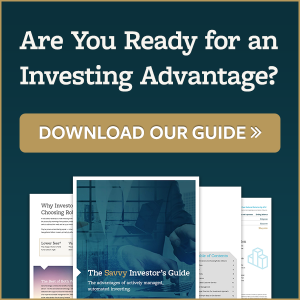The Real Cost of Paying More Than You Have To
August 17th, 2017 | Posted in InvestingLast year, investors in the United States paid, on average, the lowest mutual fund fees ever, according to Morningstar. But as a recent article in the New York Times details, investment costs are full of unpleasant surprises, and academic studies have found that many people aren’t taking advantage of better-priced alternatives.
“The costs for getting it wrong — investing in high-expense funds when close-to-identical low-expense funds are available — are large. We show that a low-expense fund investor could have earned 70 percent to 145 percent more.”
Investors Getting the Message, But Slowly
Last year, there were $326 billion in outflows from the highest-cost actively managed funds, and a record $429 billion in inflows to the lowest-cost index funds, according to Morningstar’s analysis of open-end mutual funds and exchange-traded funds in the United States.
 But positive as this trend may be, it masks some glaring, persistent differences in fund costs throughout the industry, according to Michael J. Cooper, a professor of finance at the University of Utah. “Expense ratios are dropping, which is wonderful,” he said, “but the disparity between high-cost funds and low-cost funds hasn’t changed.”
But positive as this trend may be, it masks some glaring, persistent differences in fund costs throughout the industry, according to Michael J. Cooper, a professor of finance at the University of Utah. “Expense ratios are dropping, which is wonderful,” he said, “but the disparity between high-cost funds and low-cost funds hasn’t changed.”
In a working paper titled “The Mutual Fund Fee Puzzle,” Mr. Cooper and two colleagues examined the costs of over 20,000 equity mutual funds in operation in the United States between 1966 and 2014.
Even controlling for characteristics like a fund’s style, size and risk level, the study revealed a constant disparity in fund pricing over time — and the risk of lower returns for those who buy pricier funds, because of the compounding effect of fees.
“The costs for getting it wrong — investing in high-expense funds when close-to-identical low-expense funds are available — are large,” the authors write. “We show that a low-expense fund investor could have earned 70 percent to 145 percent more” than someone who chose comparable funds at a higher price.
The authors looked at the effect of fees over a 48-year horizon, which helped to show the potentially dramatic toll of investment costs over decades.
Zacks Advantage and Low Fees
Low fees is a main focal point of Zack Advantage. By utilizing exchange traded funds and using sophisticated technology to automate mundane tasks, Zacks Advantage keeps management fees as low as 0.35% per year. Zacks Advantage seeks to utilize low-cost EFTs throughout the entire investment process to keep all portfolio expenses low.
Zacks Advantage doesn’t stop there. We also actively manage our portfolios. If market conditions change, our experienced investment team can adjust portfolio holdings to seek better returns or lower risk. And we combine that with dedicated client support, so our investors can get always answers when they want them.
With Zacks Advantage, you give up very little to get the low fees that can make such a difference to long-term investors.
Learn more about how Zacks Advantage combines the simplicity and low fees of a robo advisor with performance-focused active management. Download our Overview Guide today!
*An ETF typically includes embedded expenses that may reduce the fund’s net asset value, and therefore directly affect the fund’s performance and indirectly affect a Client’s portfolio performance or an index benchmark comparison.
Past performance is no guarantee of future results. Inherent in any investment is the potential for loss
Zacks Advantage is a service offered by Zacks Investment Management, a wholly-owned subsidiary of Zacks Investment Research. Zacks Investment Management is an independent Registered Investment Advisory firm and acts as an investment manager for individuals and institutions. All material in presented on this page is for informational purposes only and no recommendation or advice is being given as to whether any investment or strategy is suitable for a particular investor. Nothing herein constitutes investment, legal, accounting or tax advice. The information contained herein has been obtained from sources believed to be reliable but we do not guarantee accuracy or completeness. Zacks Investment Management, Inc. is not engaged in rendering legal, tax, accounting or other professional services. Publication and distribution of this article is not intended to create, and the information contained herein does not constitute, an attorney- client relationship. Do not act or rely upon the information and advice given in this publication without seeking the services of competent and professional legal, tax, or accounting counsel.

